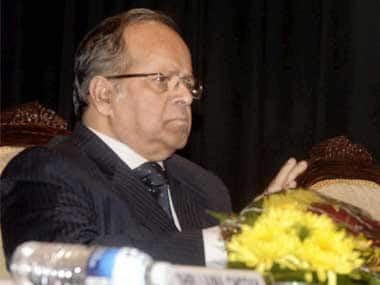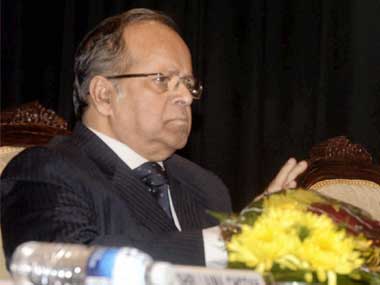By now Justice (Retd) AK Ganguly’s position in the sexual harassment case involving an intern has become almost indefensible. The
release of the intern’s complaint
by Additional Solicitor General Indira Jaising last week, assuming it is accurate, makes Justice Ganguly clearly guilty of sexual misconduct and harassment, and even if the complaint turns out to be a bit untrue - most unlikely - he has no reason to continue in office as chairman of the West Bengal Human Rights Commission. Reason: when your reputation is tainted, the credibility of your decisions will always be suspect. Even if Justice Ganguly is innocent, he should step down voluntarily to maintain the integrity and image of the office he holds. As an alleged violator of an intern’s human rights, Justice Ganguly cannot continue to protect human rights elsewhere till his name is cleared. However, this is article is not about what Justice Ganguly should do, but about raising questions that humanists, both feminists and non-feminists, should be asking themselves. For there are aspects of Indira Jaising’s tone and tenor that do not do credit to feminism. There are also aspect of media assumptions about guilt in cases of sexual harassment that are worrying. And there are aspects of male-female interactions that need deeper analysis. At the risk of offending some feminists, I would like to bring forth a few different perspectives to the issue of sexual harassment, and also some male perspective to the issue. I don’t believe the sexual harassment issue can be addressed without a genuine dialogue of the sexes – for the issue involves miscommunication as much as malfeasance. True emancipation needs men to abandon patriarchy and women to finally transcend narrow feminism, for this both need to be able to discuss their differences non-judgmentally. Among the issues that need discussing are some thrown up by Jaising’s article in the Express, how to reduce sexual harassment at home and the workplace, and how to make the environment less hostile to women. This needs a gender dialogue at many levels and not only strong laws; it needs men to understand what women really go through in their daily lives and sensitise themselves to it; it also needs women to accept the reality of what men are without junking that view. But first, the Jaising article. Justice Ganguly probably brought it on himself when he claimed the intern’s allegations were false, and that he was a “victim of situations. She was my intern, like my child.” What Justice Ganguly studiously ignored was this simple point automatically puts him in the wrong even if he had the best of intentions: as someone who was in the superior power equation of boss, he ought to have been extra careful about how his words and acts would have been interpreted by the intern, who was clearly in a subordinate role at his place of work – especially since it happened to happen in a hotel room. The pre-existence of a boss-subordinate relationship automatically precludes any sexual move even if it is deemed to be consensual by one party. So if he thought she was like a “child” to him, it was a dangerous argument to make since workplace relationships cannot be paternalistic. Also, there is a presumption that you can’t do any wrong because someone is young enough to be your child. Little wonder, Indira Jaising pounced on this to ridicule the ex-judge. She repeatedly used the intern’s various statements about his conduct to ask him whether this is the way he would “like his child to be treated.” She keeps asking this after mentioning each aspect of his alleged misconduct: “Is this how you would like your child to relax, My Lord?” Then again: “Is this how you would expect your child to be treated by someone old enough to be her grandfather, My Lord?” The answer, obviously, has to be no. But what is bothersome is Jaisingh’s covert emphasis of the age difference. Since when has age made anyone wiser? Would the conduct have been excusable if the intern had been someone old enough to be Justice Ganguly’s grandmother, rather than granddaughter? The point: it is the conduct that can be judged to be right or wrong, not the age. There is no reason why Justice Ganguly, or anyone, for that matter, should not love someone half his age, or even seek a sexual liaison with them. The problem lies in how you go about seeking it – and how you react to a direct or indirect ‘no’. Is Indira Jaising unconsciously using ageism to combat sexism, tapping into the traditional Indian prejudice against the old? If you are old, you should seek nothing more than playing nanny to your grandchildren, attend satsangs and sing bhajans. Now that we’ve established that Ganguly’s behaviour as unacceptable in the context of the workplace, we need to think what happens when such events occur in social, non work-related situations. This brings me to another issue: we still don’t have an established and acceptable way of seeking consent (for love or sex) that will not ruin relationships. Justice Ganguly thought getting the woman drunk or throwing indirect hints to her – by offering to find her a room in the same hotel for the night – was the right way of seeking consent. He was blind or deaf to the messages she was sending – by refusing to stay, by returning to her work. He got the message only when she left the room. By then it was too late to undo the damage. Why didn’t he get her no? Also, could she have been more plainer in her no? Why is it that even when she shrank from his physical touches, he didn’t get the message? Is there a need for a more formal communication on sexual requests, and consent or non-consent? Clearly, communication is something that needs to be improved. Verbal demands or solicitations for sex in the workplace must be rightfully discouraged, but what about outside the office? Should men or women shrink from speaking their minds in the interests of better communication? (Of course, the degree of openness in communication depends on the class you come from, and your cultural background, but the principle is important.) The third aspect is the
“hostile environment” that women often find themselves in.
It is obvious that the intern did not feel comfortable with where the encounter with Justice Ganguly was heading. The environment was not such in which she could clearly speak her mind and still expect to be respected. Another practicing lawyer has also blogged about the hostile environment that women face – not in the hotel rooms, but even in workplaces. I believe that work environments are hostile for women largely because there are so few of them around. This is probably why the
intern did not take legal action against Justice Ganguly, for she was probably not sure what good it would do
. It will take years of affirmative action to correct this imbalance of numbers, and, in the meantime, managements have to sensitise men to what women feel at the workplace and which they are not able to articulate. Currently, the men are too comfortable in a male-oriented work environment to notice this – but it also needs women to adjust to the reality of being a minority in the workplace till more of them join in. [caption id=“attachment_130256” align=“alignleft” width=“380”]
 Justice Ganguly. PTI[/caption] I would like to point out that a hostile or uncomfortable environment is not something only women face. Gays face the same. So does anyone with the tastes and interests of a minority. For example, in my early journalistic job, when smoking was not banned and everyone around me was a smoker, I had to endure the smoke and stay in good humour to retain friends. If I didn’t, I would have made enemies of my colleagues who would not have understood what was my beef. Now that smoking is banned in the workplace, and everyone realises the dangers of passive smoking, I don’t have any problem. But it is smokers who face a hostile environment now. I know this conduct is not intended to make me uncomfortable, but emanates from the fact that what we are unaware of, we can’t be too sensitive about. Women in the workplace may be facing a lot of unintended “hostility” for the simple reason that the environment that is friendly to women is still in the process of being created. Men who are comfortable in the current environment may not even realise why women think the environment is hostile to them. It is about numbers, to a large extent. The only solutions lie in honest gender dialogue, gender sensitisation, and an acceptance that things will not change overnight. But at the end of all this, men and women will still be different in their expectations about love and sex. We also need honest acceptance of differences.
Justice Ganguly. PTI[/caption] I would like to point out that a hostile or uncomfortable environment is not something only women face. Gays face the same. So does anyone with the tastes and interests of a minority. For example, in my early journalistic job, when smoking was not banned and everyone around me was a smoker, I had to endure the smoke and stay in good humour to retain friends. If I didn’t, I would have made enemies of my colleagues who would not have understood what was my beef. Now that smoking is banned in the workplace, and everyone realises the dangers of passive smoking, I don’t have any problem. But it is smokers who face a hostile environment now. I know this conduct is not intended to make me uncomfortable, but emanates from the fact that what we are unaware of, we can’t be too sensitive about. Women in the workplace may be facing a lot of unintended “hostility” for the simple reason that the environment that is friendly to women is still in the process of being created. Men who are comfortable in the current environment may not even realise why women think the environment is hostile to them. It is about numbers, to a large extent. The only solutions lie in honest gender dialogue, gender sensitisation, and an acceptance that things will not change overnight. But at the end of all this, men and women will still be different in their expectations about love and sex. We also need honest acceptance of differences.
Justice Ganguly vs Indira Jaising: Some not so comfortable questions
R Jagannathan
• December 23, 2013, 13:59:17 IST
Additional Solicitor Indira Jaising took Justice AK Ganguly to the cleaners by releasing the intern’s communications. But did she use ageism to fight sexism?
Advertisement
)